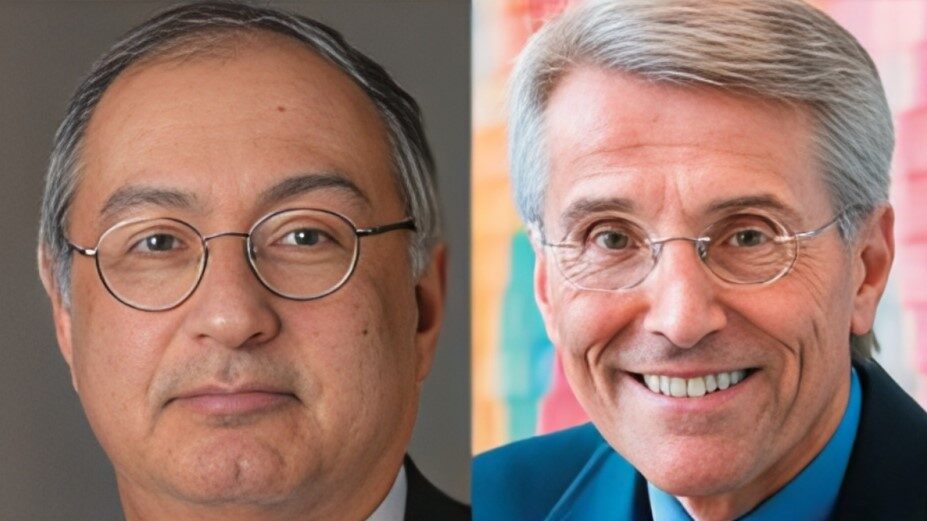Wafik S. El-Deiry shared a post on X:
“Real honor to meet Dr. Pazdur after the fireside chat to mention WIN Consortium and Razelle Kurzrock. His comments were a highlight of the meeting. Also great to meet Kristen Goldberg Inaugural at American Association for Cancer Research.
Oncology Industry Partnering Events at AACR24 in San Diego.
“Pearls from a Fireside Chat with Dr. Richard Pazdur, Director of U.S. FDA and FDA Oncology Center of Excellence and Dr. Alexander Gaffney, Executive Director of Regulatory Policy and Intelligence, Agency IQ by POLITICO.
Q1: Accelerated approvals with reference to a Regeneron?
A1: Most accelerated approvals have come from oncology. Problems have been with confirmatory data. “Not asking for more, just timing” don’t want sequential approval with confirmatory after approval. Complete response letters are patient centric. Accelerated approval with same drugs and diseases FDA wants level playing field if prior companies did the confirmatory studies.
Q2: Expectations around confirmatory studies?
A2: Wants studies ongoing. Not dosing. Studies have to be enrolling and will meet accrual goals per pre-specified timelines. Other approvals with same drug class should not be interfering the confirmatory trials.
Q3: Is OCE early to discussion?
A3: Aligned with CBER, CDER.
Q4: OCE optimist dose opt, diversity action, confirmatory studies. A lot of things making drug development more difficult?
A4: OCE staff don’t plot against industry. Can’t retrofit dosing after approval. Some attempt looking at randomized dosing. Many times, ph III performed and has shown detriment such as PI3K drugs probably had wrong dose. Larger picture issue. Philosophically difference between single arm and randomized. Single arm wants highest RR with as much drug as possible. Philosophy to maximize dose since 1960’s. That’s different from phase III that needs efficacy and safety with no detriment of OS. Can’t approve a drug with inferior survival. Doesn’t engender the confidence of the public. Have to be able to deliver the drug to get the endpoints. Immune checkpoint therapies needed more looking at OS.
Q5: Smaller companies may not have resources for confirmatory studies? Are they a casualty?
A5: The guidance is not new. Widely discussed there’s a need for comprehensive development plans. We done get involved with finances. Don’t waste your breath. You shouldn’t be in the business if you don’t have the funding. This conference gave examples for partnering.
W6: Paptaxco ?sp “harmaceutical?
A6: Counting the number of meetings. Think they had 100-150 meetings for one drug in process of withdrawal. Inferior survival discussed at ODAC; prolonging the process is resource intensive at FDA.
Inaugural American Association for Cancer Research Oncology Industry Partnering Event in San Diego.”
Razelle Kurzrock reshared the post adding:
“Pazdur was at MDACC when I was there. Then he went to FDA and revolutionized cancer approvals, saving thousands of lives.
He led the world in tumor-agnostic treatment approvals. People thought us crazy when we started trials based on molecular classification.”
Wafik S. El-Deiry, MD, PhD, FACP, FRSM, is the Associate Dean for Oncologic Sciences at the Warren Alpert Medical School and Director of the Legorreta Cancer Center Brown University and Director of the Joint Program in Cancer Biology at Brown University and affiliated hospitals. He is the Editor in Chief at Oncotarget. Dr. El-Deiry discovered p21(WAF1) as a p53 target gene, cell cycle inhibitor, and tumor suppressor that explained the mammalian cell stress response. Dr. El-Deiry’s research is focused on mechanisms of therapy resistance with major efforts in drug discovery and development.
Dr. Razelle Kurzrock is the Chief Medical Officer at ACT Genomics, Senior Deputy Director at the HKSH Cancer Centre, and Senior Advisor at Cure Science. She is also a Professor of Medicine at the University of California, San Diego (UCSD) and the Director of the Center for Personalized Cancer Therapy at UCSD. Additionally, Dr. Kurzrock is the founding director of the Michels Rare Cancers Research Laboratories at the MCW Cancer Center. Renowned as one of the world’s top 25 voices in precision medicine, she is celebrated for her contributions, of having over 950 scientific and medical publications.


